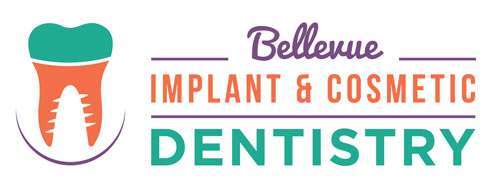
If you have sensitive teeth, you need a Dental Check Up to find out what is causing your pain. As a local dentist, we treat patients that deal with this issue. Sensitive teeth are common and as people age, even more so. Teeth can become sensitive for a variety of reasons including a lack of enamel, gum disease, and cavities. By visiting our dentist office, we can determine why your teeth are in pain and make a plan for treating them.
Here are some of the solutions we offer:
At Home Care
If your teeth are in a lot of pain, schedule a dentist appointment right away. In the meantime, there is a simple step you can take to reduce the sensitivity. Use a soft toothbrush (instead of a normal one) and apply desensitizing toothpaste. It can take a few applications to notice a difference so brush several times in the first day if you need to. If your sensitivity is due to a lack of enamel, this will help to block the pain sensations from traveling to your roots.
Treating a Lack of Enamel
Your teeth are covered with a hard protective layer of enamel. Over time, the enamel can start to wear away due to what you eat, drink, a lack of oral hygiene and age. While normal, this can create a problem because underneath the enamel is dentin and dentin is full of tiny holes. These holes lead directly to the roots inside of the tooth so when you eat, drink or even breathe, sensations of pain can get to the roots faster and are transmitted to your brain. This is what causes those sudden and sharp feelings of pain, and we can identify this issue during a dental checkup.
In order to treat this problem, we may recommend a fluoride treatment. This places minerals directly onto your teeth in order to strengthen them. Another way to deal with this is to complete a bonding procedure where a tooth-colored material is applied to the surface of your teeth. This seals in the dentin and prevents sensations from traveling through it. For teeth that are extra sensitive, we can also apply a dental crown to surround the tooth entirely.
Treating Gum Disease and Cavities
If you have gum disease, it can make your teeth, and your entire mouth feels sensitive. In its early stages, gum disease will make the gums swell up, bleed, and hurt. If it spreads, the gums will start to recede, and more of the tooth structure and roots become exposed which creates an area for bacteria to gather and attack the tooth. This can lead to pain and even bone loss. It is a serious condition that needs to be treated as quickly as possible in order to prevent tooth loss. We can identify and treat it quickly when you schedule a dental checkup. Once healed, your teeth will feel less sensitive.
If you have cavities, this can also make your teeth feel sensitive. We can treat cavities quickly and keep you comfortable while doing so. After the cavity is treated, that area of your mouth will feel better and become less sensitive.
To learn more about what is causing your tooth sensitivity, schedule a dental checkup today.
Related Posts
The Importance of a Routine Dental Check-up and Cleaning
We all try our best to take care of our oral health, and a dental check-up is certainly an important part of that. We brush, floss, try to eat properly, and …
Important Information About Dental X-Rays
Those who have had a dental checkup in the recent past likely had a dental X-ray taken. This is a normal component of the typical dental checkup. Also referred to as a radiograph, dental X-rays …
Delaying A Dental Checkup Will Only Make Things Worse
Dental CheckupIf it is time for a dental checkup or you have not had one in the last six months, give us a call. We won't judge you and truly only care about keeping your …
Preventive Dentistry Preserves and Protects Your Teeth
Preventive dentistry allows you to maintain healthy gums and teeth. A healthy mouth leads to a healthy body. This practice also prevents dental problems. It saves you from developing difficulties in smiling, …
